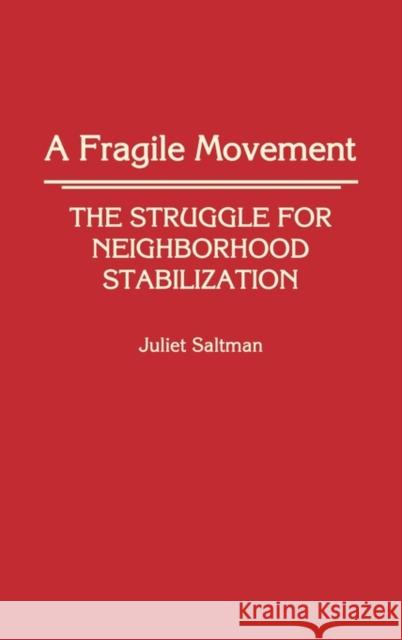A Fragile Movement: The Struggle for Neighborhood Stabilization » książka
A Fragile Movement: The Struggle for Neighborhood Stabilization
ISBN-13: 9780313264900 / Angielski / Twarda / 1990 / 470 str.
This study deals with the effects of the neighborhood stabilization movement, which was formed to maintain community racial integration. It is the first socio-historical analysis of the movement. As Saltman discovered, it is easier to attain integration than to maintain it. The study sought to identify the factors that lead to success or failure in maintaining community racial integration. While it includes quantitative data, this work also reveals the feelings, hopes, and passion of the people involved in the struggle.
The book is divided into four parts. The first section deals with the methodological and analytical framework of the study, as well as offering perspectives on social movements in general and the neighborhood stabilization movement in particular. Part Two is an analysis of the movement on the community level in terms of its development and results. It presents five detailed case studies and ten brief profiles of urban and suburban movement efforts. In Part Three, the national level of the movement is discussed in terms of its development and its interaction with local movement organizations. The impact of the national climate on both levels and the movement as a whole is explored. Part Four outlines conclusions and policy implications of the study and offers a strategy for maintaining racial integration in urban neighborhoods.











